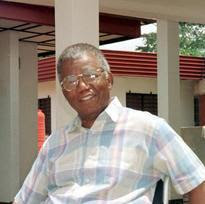
Schedule
All Panels Will Take Place In The Martinos Auditorium Of The Perry And Marty Granoff Center For The Creative Arts...
Participants Subject To Change
Saturday, December 3, 2011
8:30 am – 9:00 am
Welcome
Ruth Simmons, President, Brown University
Opening Address
Emeka Anyaoku, Chief, Former Secretary General of British Commonwealth
9:00 am – 10:15 am
The Arab Spring: Challenges to Democratization and Nation Building
· MODERATOR: Peter M. Lewis, Associate Professor and Director of Africana Studies Program, Johns Hopkins University
· Daniel Serwer, The Center for Transatlantic Relations, American Consortium on European Union Studies, EU Center of Excellence, Johns Hopkins University
· Abdelwahab El-Affendi, Coordinator, Democracy and Islam Programme Centre for the Study of Democracy; University of Westminster
· Chibli Mallat, The Custodian of the Two Holy Mosques; Visiting Professor of Islamic Legal Studies, Harvard Law School
· Richard Joseph, John Evans Professor of Political Science, Northwestern University
· Ali Mazrui, Director, Institute of Global Cultural Studies, Binghamton University
10:30 am – 11:45am
Arab Spring 2011: Prognosticators Roundtable
· MODERATOR: Darren Kew, Associate Professor, Department of Conflict Resolution, Human Security, and Global Governance; Executive Director of the Center for Peace, Democracy, and Development, University of Massachusetts
· Emmad Shahin, Henry R. Luce Associate Professor of Religion, University of Notre Dame
· Lina Khatib, Program Manager for the Program on Arab Reform and Democracy, Stanford University
· Tarek Masoud, Assistant Professor of Public Policy, Harvard University
· Stuart Krusell, Associate Director, Office of External Relations, MIT
12:45pm – 1:15 pm
Keynote Address
Ali Suleiman Aujali, Libyan Ambassador to the United States
1:30 pm–3:00 pm
Darfur: Towards Sustainable Peace
· MODERATOR: Lina M. Fruzzetti, Royce Family Professor in Teaching Excellence and Professor of Anthropology, Brown University
· Alex de Waal, Program Director, HIV/AIDS and Social Transformation, Social Science Research Council
· Ali B. Dinar, Associate Director, The African Studies Program, University of Pennsylvania
· Eddie Thomas, Fellow, The Rift Valley Institute
· Christa Capozzola, Deputy Assistant Administrator for Democracy, Conflict, and Humanitarian Assistance, USAID
· Ryan Spencer Reed, Photographer
3:15 pm – 4:45 pm
Southern Sudan: Obstacles Facing the World’s Newest Nation
· MODERATOR: Roger Middleton, Chatham House
· Thomas Kwasi Tieku, Director, African Studies, University of Toronto
· Lant Pritchett, Professor of Economic Development, Harvard University
· Jehanne Henry, Senior Researcher for Sudan and South Sudan, Human Rights Watch
· Rebecca Hamilton, Journalist and Author, Pulitzer Center
· Eric Reeves, Smith College
5:00 pm – 6:00 pm
Keynote Address
John Schram, Former Canadian Ambassador to Zimbabwe, Angola, Ethiopia, Eritrea and the Sudan; High Commissioner to Ghana and Sierra Leone; Distinguished Senior Fellow, Norman Paterson School of International Affairs Senior Fellow, Centre for International Relations, Queen’s University
7:00 pm – 9:00 pm
Literature and the Spoken Word
* This event will take place in the George Houston Bass Performing Arts Space in Churchill House located at
155 Angell Street
· MODERATOR: Raphael d’Abdon
· Twin Poets
· Titillate Sonuga
· Offiong Bassey
Presiding: Nduka Otiono, Postdoctoral Fellow, Africana Studies, Brown University
Sunday, December 4, 2011
8:30 am – 9:00 am
Welcome
Corey D. B. Walker, Chair and Associate Professor, Department of Africana Studies, Brown University
Opening Address
Chinua Achebe, David and Marianna Fisher University Professor of Africana Studies, Brown University
9:00 am – 10:15 am
China and the United States in Africa: Cooperation or Confrontation?
· MODERATOR: Olakunle George, Associate Professor of English and Africana Studies, Brown University
· Robert Rotberg, Director, Program on Intrastate Conflict and Conflict Resolution, Harvard University; President, World Peace Foundation
· Walter Carrington, Former U.S. Ambassador to Nigeria
· James J. Hentz, Head of Department and Professor of International Studies & Political Science, Virginia Military Institute
· Scott D. Taylor, Director of African Studies, Georgetown University
· Omer Ismail, Senior Policy Advisor, The Enough! Project
· Deborah Brautigam, School of International Service, American University
10:30 am – 11:45 am
China’s Presence in Africa: Collaboration or Colonialism?
· MODERATOR: Tijan Sallah, Senior Economist, The World Bank
· Richard Dowden, Director, Royal African Society of London
· Matt Wells, Researcher, Human Rights Watch
· Muna B. Ndulo, Professor of Law, Director of Institute for African Development, Cornell University
· Tony Gambino, Consultant and Former Mission Director, USAID Congo
· Xiaohon He, Professor of International Business, Quinnipiac University
12:30 pm – 1:15 pm
Keynote Address
David Shinn, Former United States Ambassador to Ethiopia and Burkina Faso, Adjunct Professor of International Affairs, The George Washington University
1:30 pm – 3:00 pm
Zimbabwe: Prospects for a Stable Democracy or Dictatorship?
· MODERATOR: Corey D. B. Walker, Chair and Associate Professor, Department of Africana Studies, Brown University
· Alex Vines, Research Director, Royal Institute of International Affairs; Chair of Africa Program, Chatham House
· Blair Rutherford, Director of the Institute of African Studies, Carleton University
· John Campbell, Former U.S. Ambassador to Nigeria, Senior Fellow for African Policy Studies, Council on Foreign Relations
· Robert Rotberg, Director, Program on Intrastate Conflict and Conflict Resolution, Harvard University; President, World Peace Foundation
· Chitsaka Chipaziwa, Ambassador of Zimbabwe to the United Nations
· C. E. Onukaogu, Resident Commissioner, The Independent National Electoral Commission (INEC), Anambra State, Nigeria
· Vivian Nkechinyere Enomoh, The Independent National Electoral Commission (INEC), Anambra State, Nigeria
3:15 pm – 5:15 pm
Literature: The Spoken Word
MODERATOR: Alastair Niven, Principal, Cumberland Lodge
Chinua Achebe
Sonia Sanchez
Jayne Cortez
Yusef Komunyakaa
Obiora Udechukwu
Bassey Ikpi
-------------------------
RELATED TOPIC













